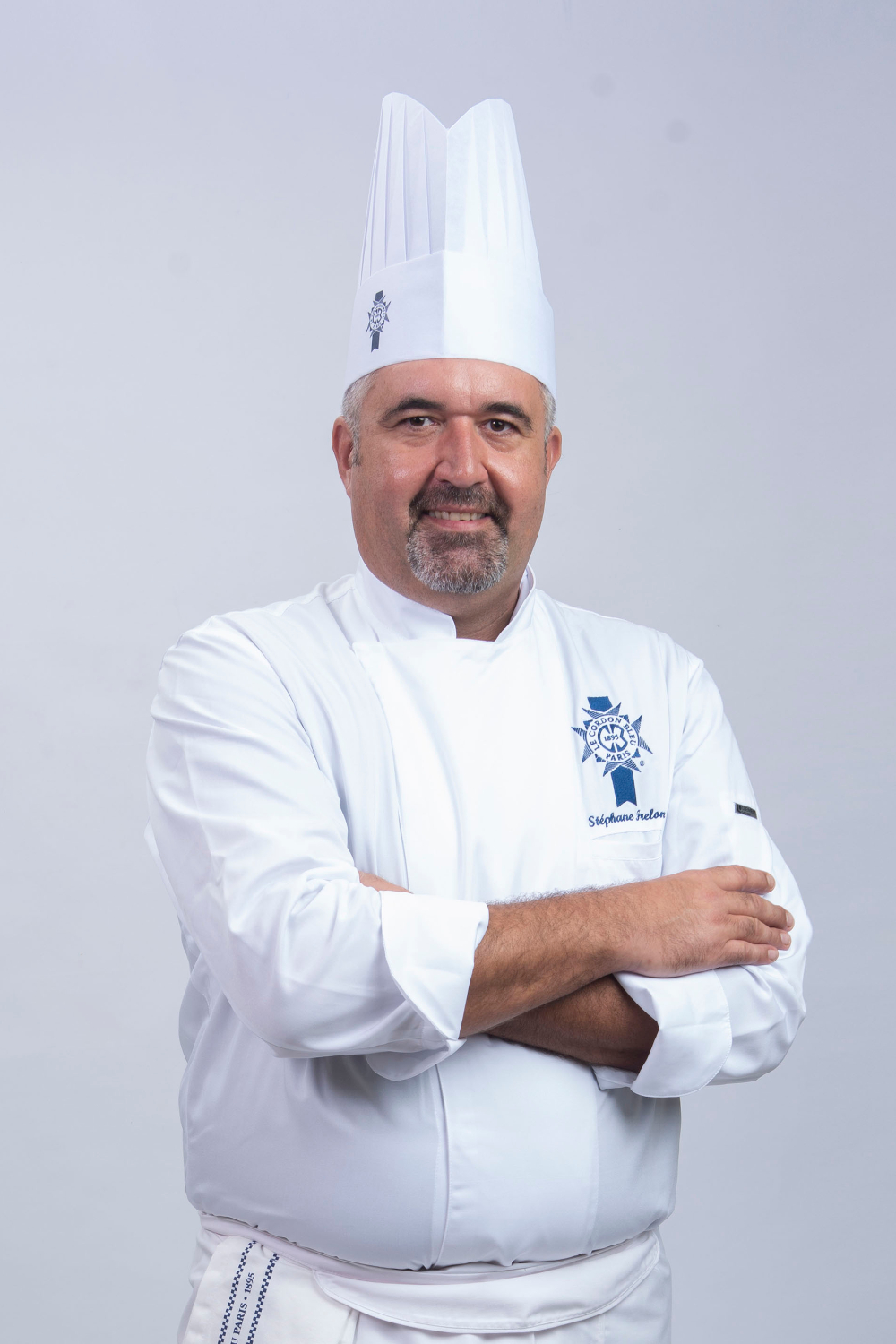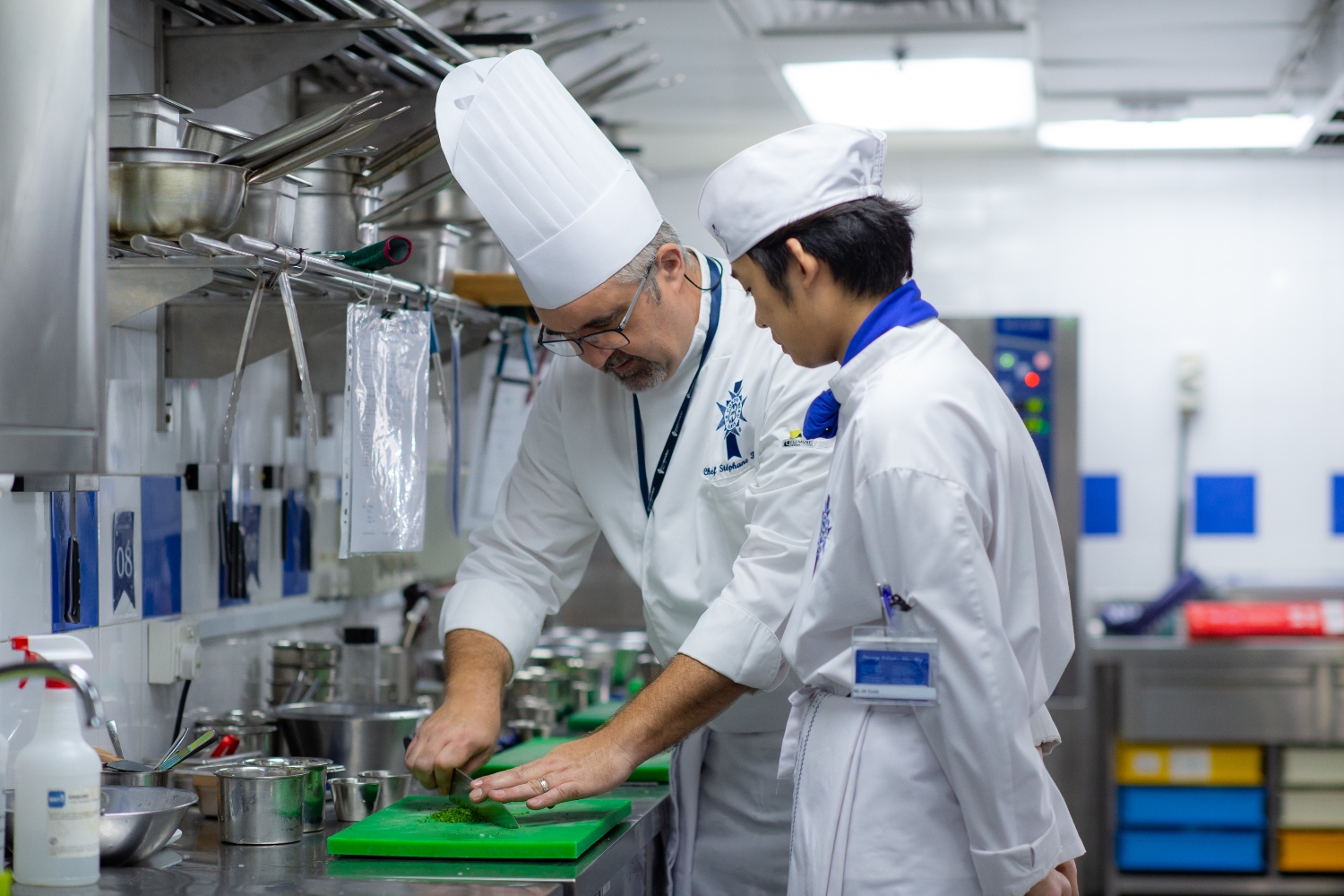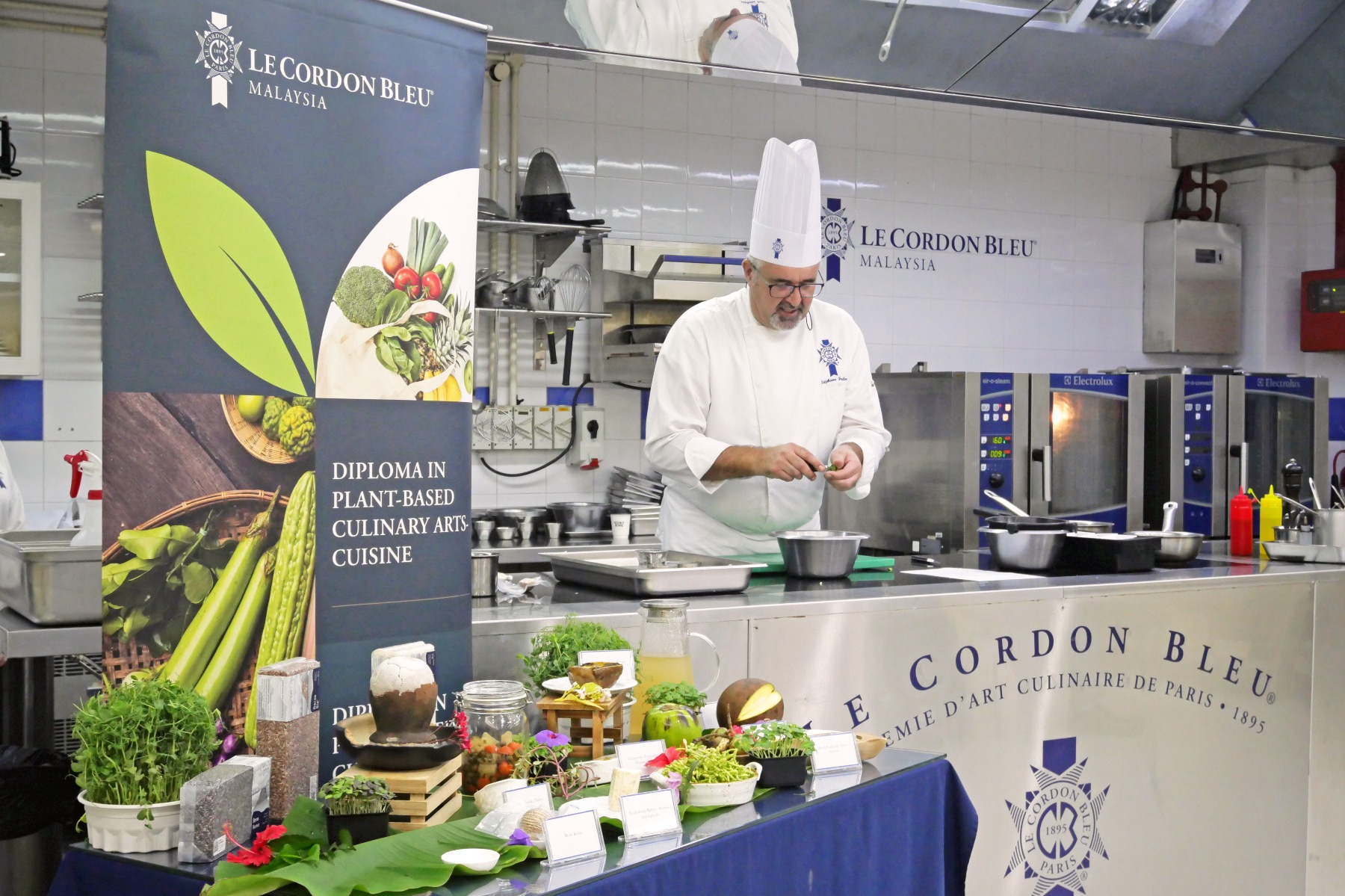The popularity of veganism has risen over the years, as more people worldwide have acquired an appetite to adopt a healthier diet. Besides, chefs and dietitians always encourage us to get our daily fruits and vegetables intake for various health reasons, which can be easily achieved with a vegan diet. While we understand that giving up meat overnight can be a stretch, you can adapt to the plant-based diet by consuming it on alternate days or a few times a week to regulate.
There are plenty of affordable yet delicious plant-based options in the market, according to Technical Chef Stéphane Frelon of Le Cordon Bleu Malaysia. Also a lecturer at Sunway College where he heads the Diploma in Le Cordon Bleu Sunway’s Plant-Based Culinary Arts course, Chef Frelon thinks that vegan food is easily accessible and wants more Malaysians to give it a try.

With over 30 years of French cooking experience in France, Canada, England, and now Malaysia, Chef Frelon shares the benefits of veganism and what Le Cordon Bleu Malaysia can offer those who are interested in cooking their own plant-based food in an exclusive interview with FirstClasse Malaysia.
Why do you think more Malaysians should try a plant-based diet?
The obesity rate in Malaysia is pretty high; but then again, it’s the same in many other countries. Going plant-based can help curb this problem. Besides, veganism can also reduce animal farming and wildlife hunting, putting a stop to animal cruelty.
Is the percentage of people going vegan rising in Malaysia?
Slowly, but surely. I’ve been in Malaysia for five years now, and as a chef, I noticed that more people are requesting vegan dishes. There is more awareness of animal cruelty compared to before and Malaysians are playing a big part in helping. Besides, most people are looking to eat healthier too. So, eating a vegan diet helps them achieve their goals of eating more fruits and vegetables.
Are there inexpensive plant-based food options?
Vegan food is only expensive when you go for soy-produced fake meat. The process of getting the textures close to an animal’s is challenging, hence the hefty price tag. Go for whole, natural food like green vegetables, fruits, nuts, and seeds. They’re delicious when cooked with good quality ingredients, and they’re much healthier.

How accessible are raw vegan ingredients for home cooking?
The Southeast Asian region is packed with exotic fruits and vegetables, especially in Borneo. I love shopping at the Borneo weekend market at Seri Kembangan (Pasar Borneo) for the most unheard-of produce like bambangan (wild mango), belimbing buluh (tree sorrel), daun taya, gandis, and umbut puring (green vegetables). My favourite is the Lion’s Mane mushroom, because the texture resembles the characteristics of beef or mutton, and I can cook so many dishes with it.
What can you do to encourage veganism?
Promoting more plant-based recipes and offering scrumptious vegan menus at restaurants may encourage people to adopt this diet. Maybe not completely, but consuming this diet a few times a week will make a big difference. Besides, I teach some plant-based culinary arts courses at Sunway College’s Le Cordon Bleu and they are beneficial for new chefs who want to focus on vegan food.
There are short courses available for people who are interested in cooking delectable vegan dishes too. Plant-based food doesn’t have to be bland. You can learn French cooking techniques and styles, and apply them to your everyday cooking at home.
Besides French flavours, what other cuisines would you like to pursue?
I’m intrigued by the Southeast Asian flavours and ingredients, honestly. From Malay and Indonesian to Thai and Vietnamese food, there are so many characters to explore. I love the sweet, sour, and spicy notes in every dish, and with the French cooking techniques, I believe we can create something phenomenal.
Read more vegan-related stories here.








